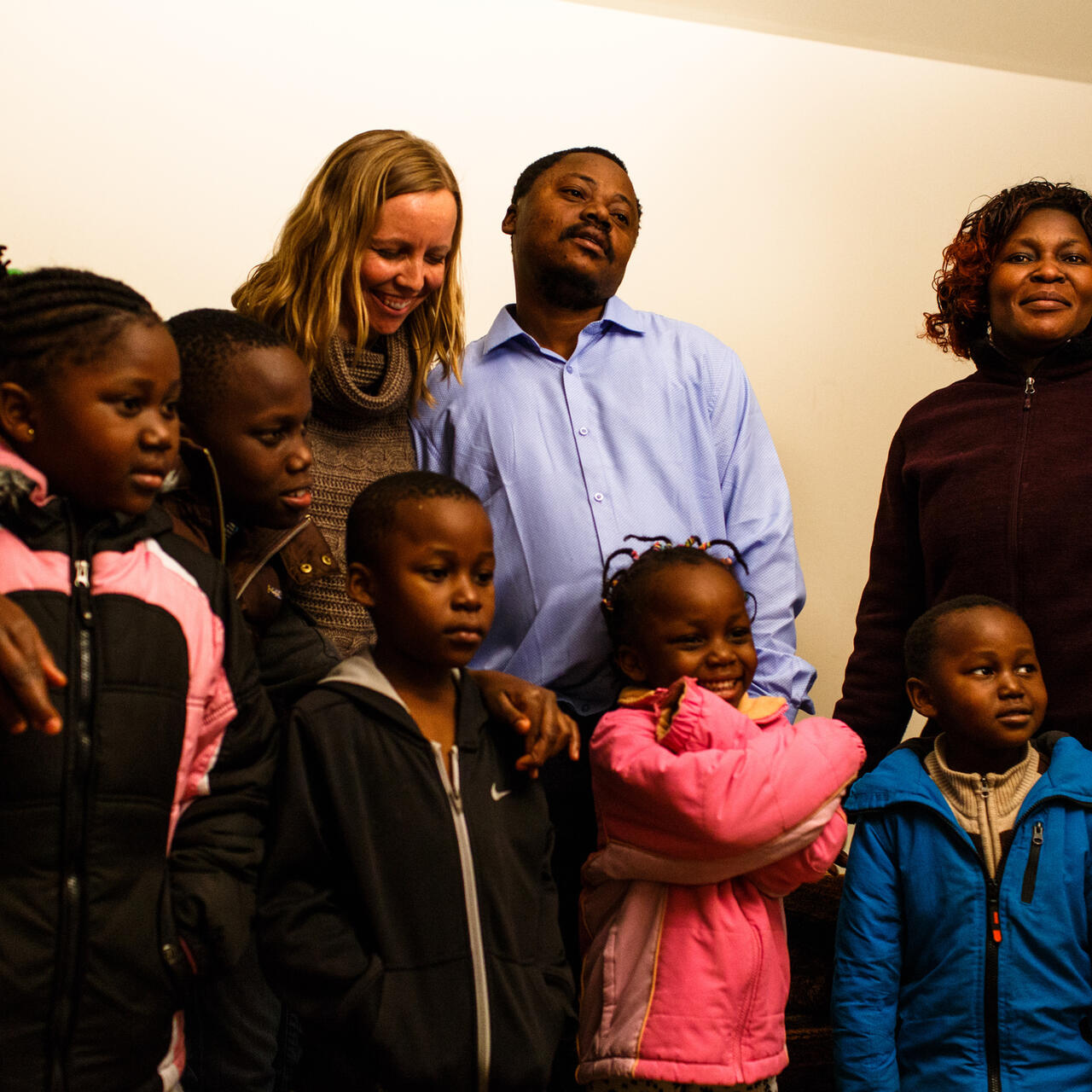
"I never thought an American would want to help me"
Meet the Americans who are giving a warm welcome to refugees uprooted by conflict and violence, and helping families start anew in the United States.

Meet the Americans who are giving a warm welcome to refugees uprooted by conflict and violence, and helping families start anew in the United States.
Kazingufu Rananzani admits that he never expected an American wanting to help him.
Originally from the Democratic Republic of Congo, he fled in 2002 to Uganda, where he met his wife, Hellen, with whom he has five children.
It wasn’t safe for his children to go to school in Uganda, and Kazingufu, who goes by the nickname KG, saw no future for his family there. They lived in the more dangerous areas of the country.
But the Rananzanis were fortunate: They were accepted as refugees to live in the United States and were resettled by the International Rescue Committee.
Soon after KG and his family arrived in their new city, Baltimore, in July 2016, the IRC introduced him to Susie Lawrence, an audiology nurse at the Johns Hopkins Hospital. While Susie enjoys her work, she had long wanted to mentor an immigrant family and had volunteered for the IRC mentorship program.
“I have a soft spot for immigrants,” says Susie, 39. “I worked with immigrants 15 years ago and know what struggles they go through. With all the news about the current refugee crisis, I wanted to find a tangible way to help.”
The IRC mentorship program helps Americans connect with refugees to help them get acquainted with services and resources in their communities. Volunteers assist these new arrivals to understand public transportation, establish banking accounts, and discover libraries and food markets.
KG was happy to be in America, a place where he hoped to start over and rebuild the life taken from his family. But he, like many new immigrants, was wary, all too aware of the increased suspicion of refugees from war-torn areas of the world.
He was pleasantly surprised. When they first met, Susie and KG laid out the goals he hoped to accomplish in the first few months, one being to get his learner’s driving permit. They studied together and KG passed the test last December.
“I’m very lucky to have Susie in my life,” KG says. “The kids really love her. They ask, ‘Daddy, when is Aunt Susie coming home?’”
“With so many obstacles in creating a life in a new country, nothing gets them down,” Susie says about the family. “KG, especially, keeps laughing even when times get tough. He faces everything that’s in front of them and it’s inspiring.”
KG has found new friends in his new country. And so has Susie. “They have totally taken me in!” Susie says. “They're just incredibly welcoming. They've given me community and they love me and I love them. I feel like they've done more for me than I could ever do for them.”